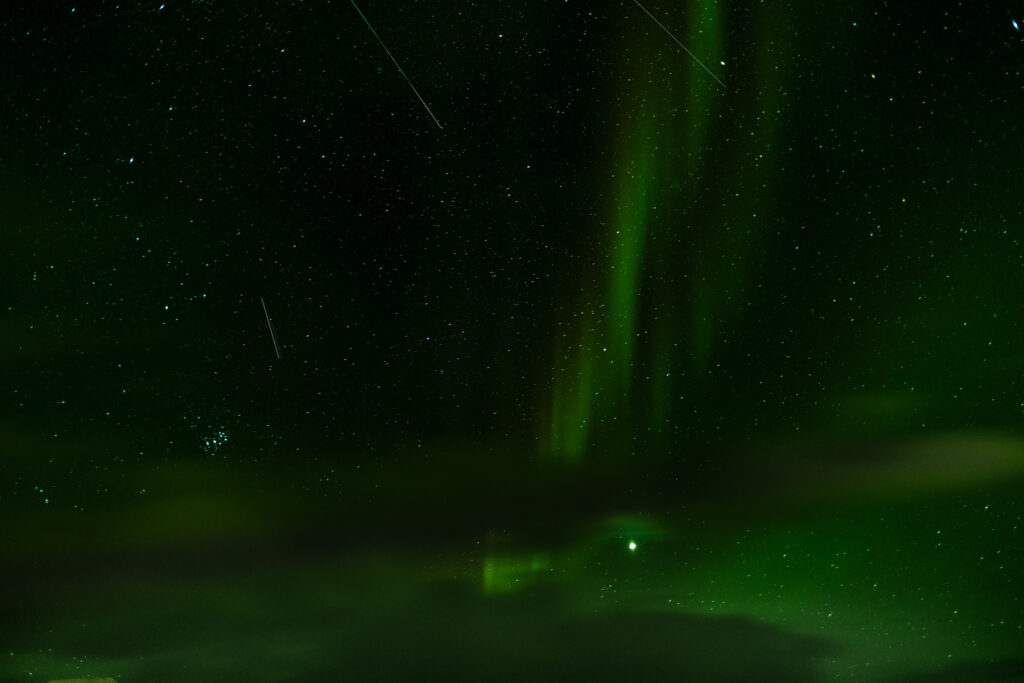
In the years that I have lived on Svalbard I have often described the passage of the year as being more like one long day than a year with seasons. One with weeks of sunrise and sunset, and months of night and day. Of course this is not truly accurate either. In fact, I’m not sure that there is a meridian-accurate way of describing the changes here because they are so extreme.
I think that is the part that is truly difficult for people to grasp.
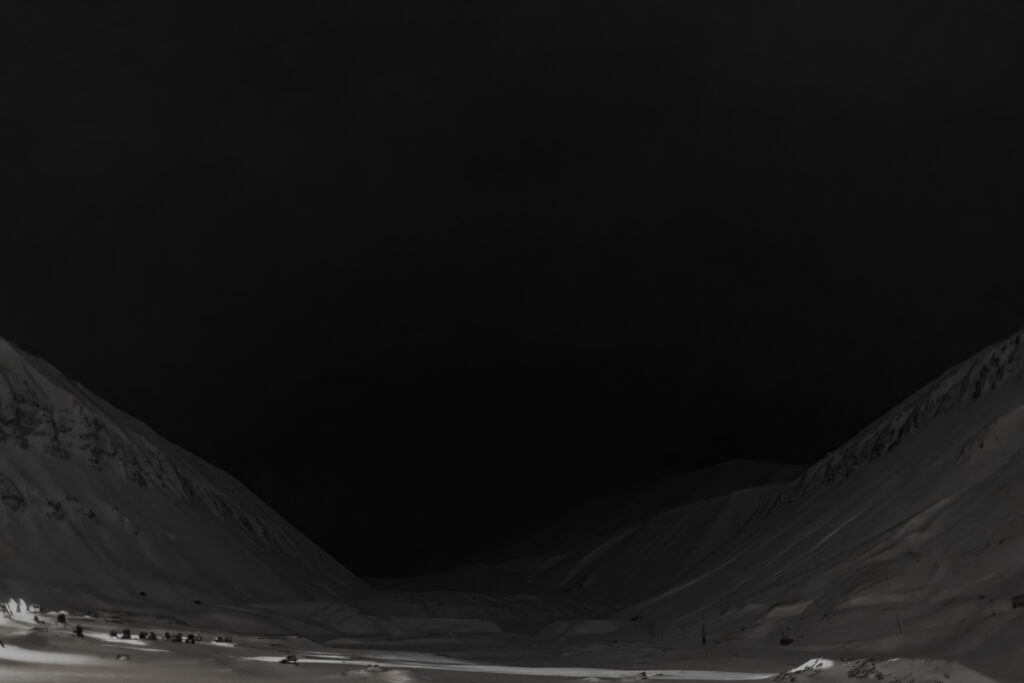
Recently I had artists staying with me during polar night, and all of them were surprised by the experience. They expected polar night on Svalbard to be the same as what passes for polar night in northern Norway or Iceland. They thought that there would be some hours of light. Enough to take photos outside. Enough to see mountains in the distance. One artist, when I asked what surprised her the most, said it was the sadness she felt at realizing she wouldn’t see the landscape around here. Here she was, on Svalbard, and she couldn’t see it. She thought there would be at least a little light.
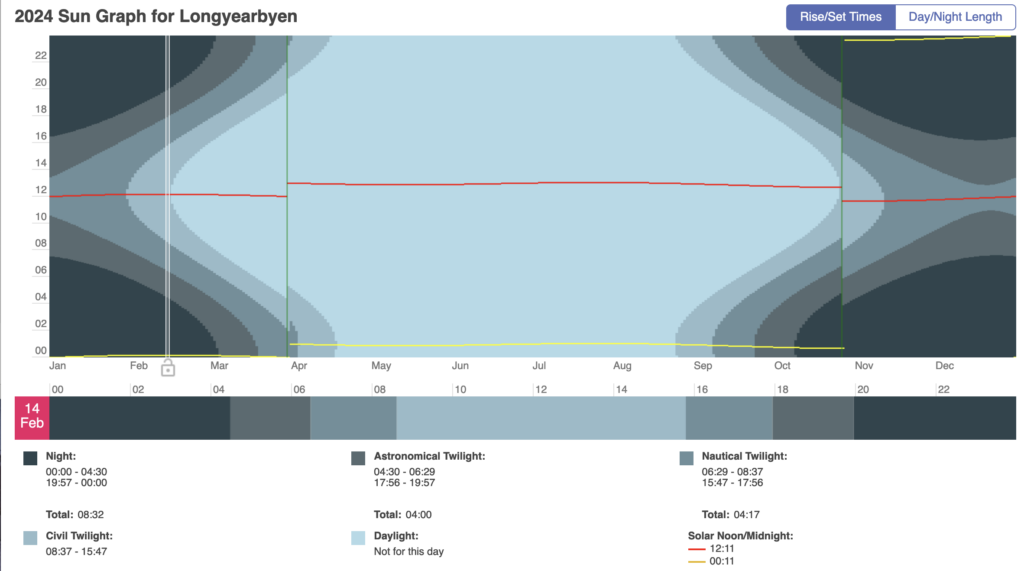
There is not. December on Svalbard has no form of daylight. It is night, 24/7. Strictly speaking, we go through forms of twilight that I hadn’t previously known existed. Civil twilight. Nautical twilight. Astronomical twilight.
It is, of course, beautiful. Simply because we don’t have sun doesn’t mean we don’t have light. You appreciate the moonlight more. The stars are more fiery. And of course, northern lights can happen all day, not just in the night hours. Because of the uniqueness of this place you adjust to the idea that the dark is no more (and no less) dangerous than the light. We all live our lives normally. Getting up and going to bed in the dark. Socializing, working, playing. You wear reflective clothing so you can be seen. Maybe you take to wearing a headlamp. Many of us, when we go outside for a walk, will take a headlamp but prefer to keep it off as much as possible. Our eyes adjust surprisingly well to just the smallest amount of light. We learn to appreciate the difference between a cloudy sky, which makes for a heavy dark, and clear sky which can be very bright with the natural lights of nature.
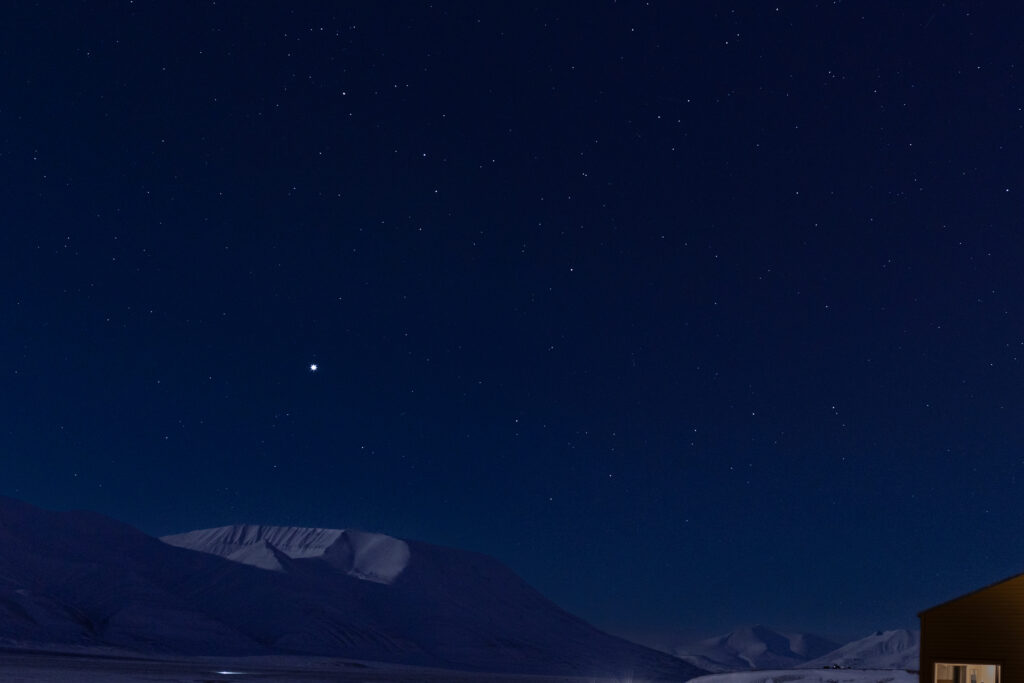
The most frequent question I am asked is if I find it depressing. I do not. I find the dark beautiful. When I lived in the Pacific Northwest, the heavy clouds and frequent winter rain could be oppressive. And some people find it difficult to live in. I was never one of those, and perhaps that has stood me in good stead here. The night holds no monsters for me. Not internal or external.
In January, everything changes as the sun departs Antarctica and comes back to us. Because our eyes are so sensitive to light we see the very gradual return clearly. All the beautiful blue light of January that is exaggerated by our phone cameras to something other worldly, and yet accurate in its emotional truth.
In two days on February 16 the sun will tip the horizon for 57 minutes. The first Arctic sunrise. From there it is a race to polar day. The light will become longer by 20 minutes a day. That’s an hour of change in three days. It is fast. In March we will see the first sunlight in the valley, and then in just over a month, April 19, we will have polar day when the sun no longer goes below the horizon. It will rise up over the next few weeks until it is at its apogee, and then it will circle us from a position as close to high noon as it can get. Think of it, noonday sun for a month. It is harsh, much harder to live with for me than darkness.
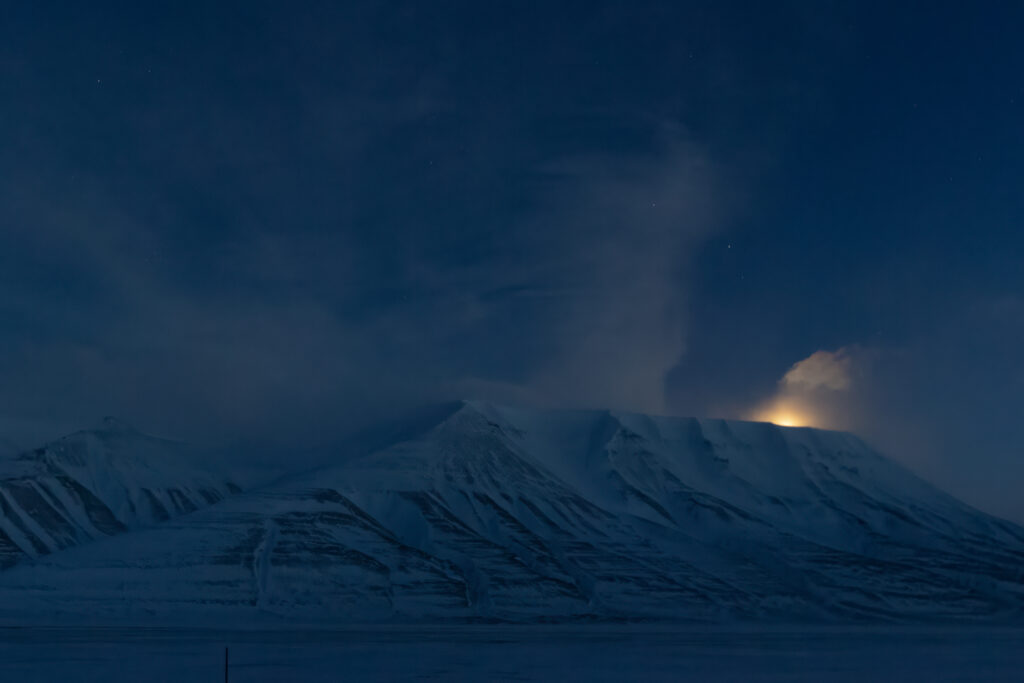
I am always sorry when darkness leaves us. I miss it. I have never been a child of summer. But what does comfort me deeply is that here, we feel the turning of this planet in a primal way. Here, I take comfort in the fact that no matter how much we make a mess of things. No matter how much damage we do to the environment and to each other, this dance of sun and Earth and the planets goes on. We are inconsequential to this great movement of the spheres. Our time here is not even the blink of an eye, and whether or not our species is smart enough to survive itself, these changes will happen and they are amazing. I find that comforting.
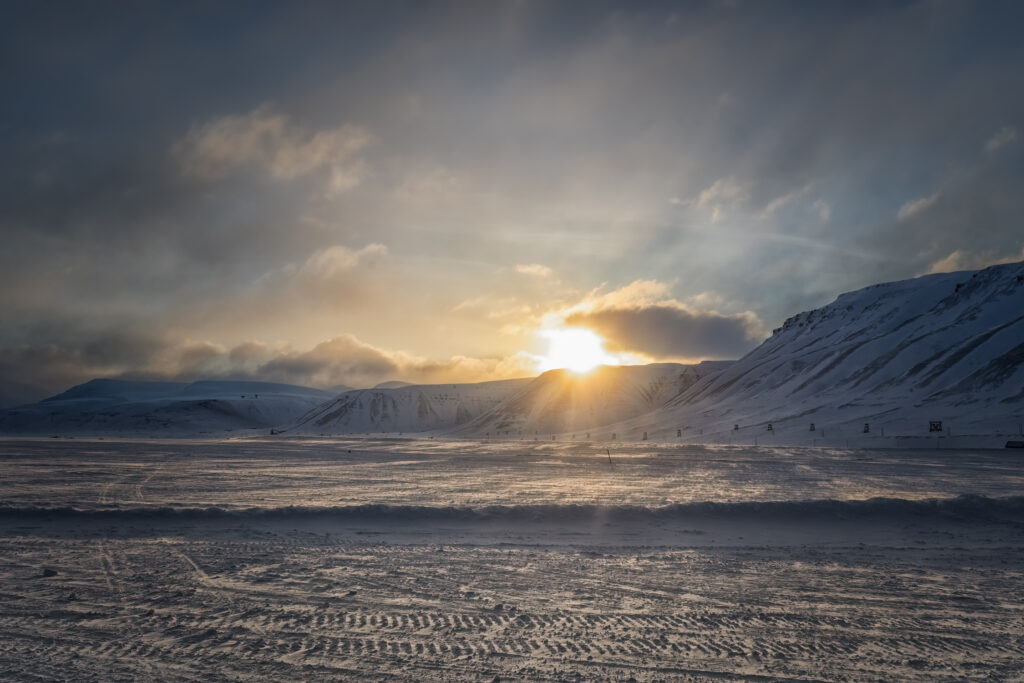
I love this description of what it is like to transition so abruptly from total darkness to neverending sun. Like you, I would be sad to see the darkness go, followed by the fleeting 8 weeks or so that dance between day and night before fairly quickly succumbing to the endless summer. It wouldn’t be long before I’d want to head south to escape into a respite with some nighttime.
Thank you! It is an amazing moment. This year was more subdued than previous years have been as there has been so much cloud cover. But whether we see it or not, the great planetary dance goes on. Midnight sun is very tough on me. I often try to get away, at least for a couple of weeks, because I find the constant high noon physically exhausting. I sleep, but don’t feel I rest. If that makes sense.